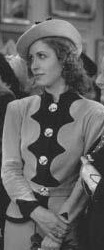You can help expand this article with text translated from the corresponding article in Spanish. (July 2025)Click [show] for important translation instructions.
|

Adelaide Soler was an Argentine film, stage, radio, television and theater actress during the golden age of Argentina cinema. She was born in Buenos Aires and died there in 1976.